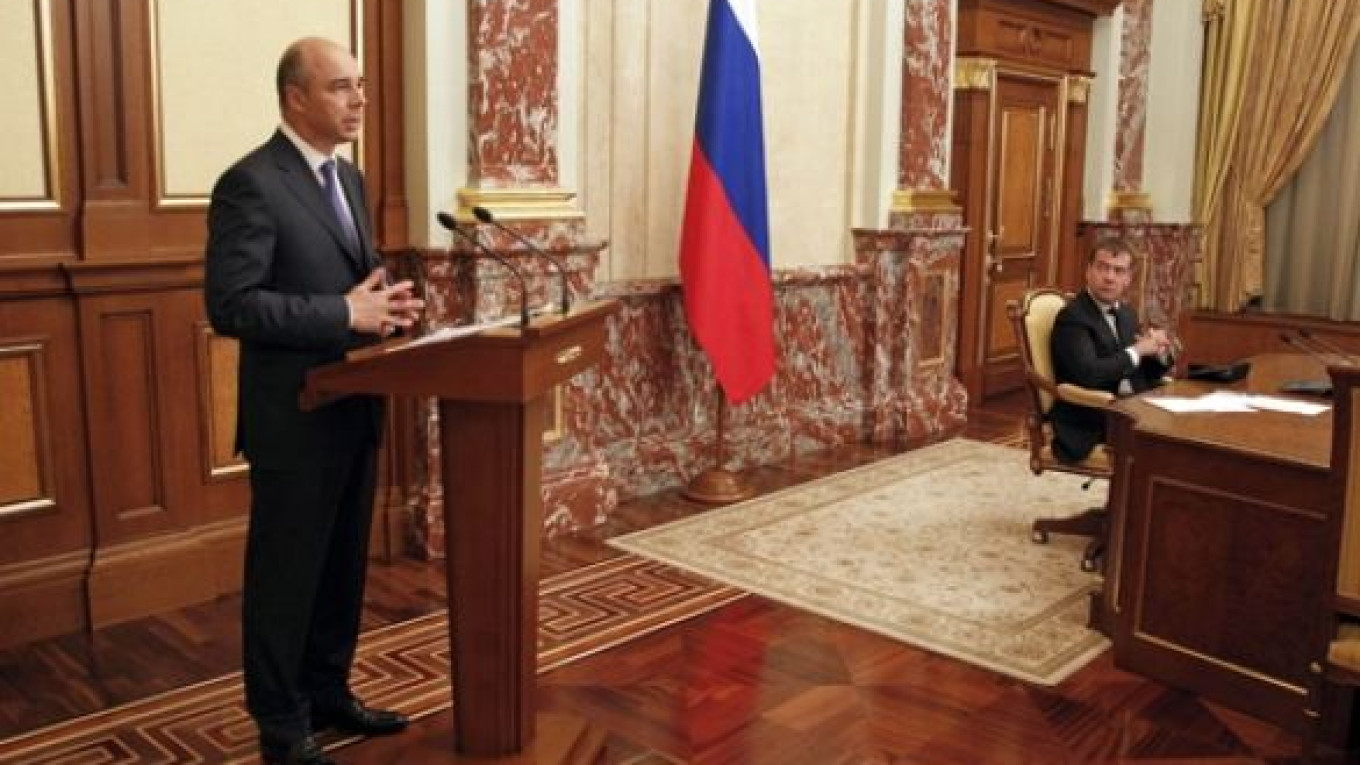The Cabinet on Thursday backed legislation that seeks to rein in the country’s growing dependence on oil exports.
Under the bill, the Finance Ministry will calculate the half of federal revenue that comes from oil exports using a precise mathematical formula, rather than relying on predictions of the Economic Development Ministry.
The new approach would have the government use the median oil price of the past 10 years as a basis for estimating how much it will get in revenues from the industry for every successive year.
“This mechanism of defining the oil price would allow us to avoid personal judgment … and make it more solid,” Finance Minister Anton Siluanov said while presenting the proposal.
Until now, the Economic Development Ministry has made assumptions about the oil price for the coming year, often eventually revising the number in the course of that year.
This year’s budget assumes that the main Russian blend of oil, Urals crude, will average $115 a barrel.
The number initially was $100, while the oil price dipped to about $90 in recent weeks.
There would be a transition period, Siluanov said. For next year’s budget, the reference period would be five years. After that, it would increase annually by one year.
The proposal, if approved by the legislature and the president, will erase 343 billion rubles ($10.4 billion) from the 2013 federal revenues, Siluanov said.
That would happen because the oil price assumption that now underlines the budget stands at $97 a barrel. Under the new calculation method, the price would slide to $92, he said.
Those numbers could change because most of the Cabinet wants to see a more generous formula, which is formally called “the budget rule.”
First Deputy Prime Minister Igor Shuvalov, Deputy Prime Minister Arkady Dvorkovich and Economic Development Minister Andrei Belousov called for a change that would account for dollar inflation.
That change, which could find its way into the bill as an amendment, would raise the price per barrel to $99 for the purposes of budget planning.
It appeared that the Cabinet had previously agreed to endorse the inflation addendum, but Prime Minister Dmitry Medvedev on Thursday held off on making the final decision at the last moment, ordering additional discussions on the issue.
Separately, after the Cabinet meeting, Siluanov said that Medvedev had given the government permission to tap into the Reserve Fund, a financial cushion, to draw 200 billion rubles if needed to support social spending and corporations, in the event that the current economic downturn in the European Union rubbed off on Russia.
“We are hoping to never use it,” Siluanov added.
Opening the Cabinet meeting with the decision, Medvedev said, “We have started preparations for any possible changes of the external conditions.”
A Message from The Moscow Times:
Dear readers,
We are facing unprecedented challenges. Russia's Prosecutor General's Office has designated The Moscow Times as an "undesirable" organization, criminalizing our work and putting our staff at risk of prosecution. This follows our earlier unjust labeling as a "foreign agent."
These actions are direct attempts to silence independent journalism in Russia. The authorities claim our work "discredits the decisions of the Russian leadership." We see things differently: we strive to provide accurate, unbiased reporting on Russia.
We, the journalists of The Moscow Times, refuse to be silenced. But to continue our work, we need your help.
Your support, no matter how small, makes a world of difference. If you can, please support us monthly starting from just $2. It's quick to set up, and every contribution makes a significant impact.
By supporting The Moscow Times, you're defending open, independent journalism in the face of repression. Thank you for standing with us.
Remind me later.


